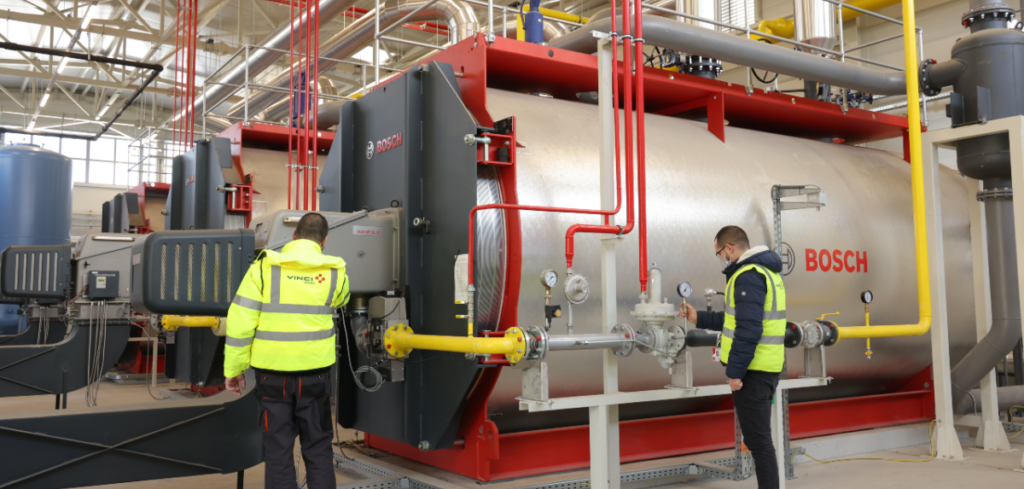Belgrade Nikola Tesla (BEG) Airport in Serbia has installed a trigeneration heating plant and switched from heavy fuels to natural gas.
@AeroNikolaTeslaThe new plant has 44MW of total heating capacity and is equipped with a state-of-art trigeneration system for production and distribution of heating, cooling and electric energy. This system, together with the smart building management system, was designed to optimize all energy consumption that is dependent on the outdoor temperature.
As a result of this, the total heating capacity of the airport has increased by 25%, thus covering the thermal energy needs of the current customers, and the future customers when the airport is expanded. This has enabled a 25% reduction in the airport’s carbon footprint, which has saved 3,000 tons of carbon dioxide from being emitted, the airport estimates.
The system forms part of Belgrade airport’s environmental action plan created by airport operator Vinci Airports, and contributes to its goal of hitting zero net emissions by 2050 at all of its airports. The airport is also constructing a 1MW solar power plant, two solid waste processing plants and a wastewater treatment plant. In parallel with the sustainability works, there are ongoing works on the modernization and reconstruction of BEG.
Francois Berisot, CEO of BEG, said, “The new power plant for production and distribution of the heating and electric energy, in addition to decreased environmental impact on global warming and local air quality, provides great savings, both for the airport and in terms of the utilization of available natural resources.
“Extensive works on airport modernization and reconstruction include significant investment into an environmentally sustainable business, realized to reach one step further in environmental impact reduction in terms of greenhouse gases, water and waste.”

